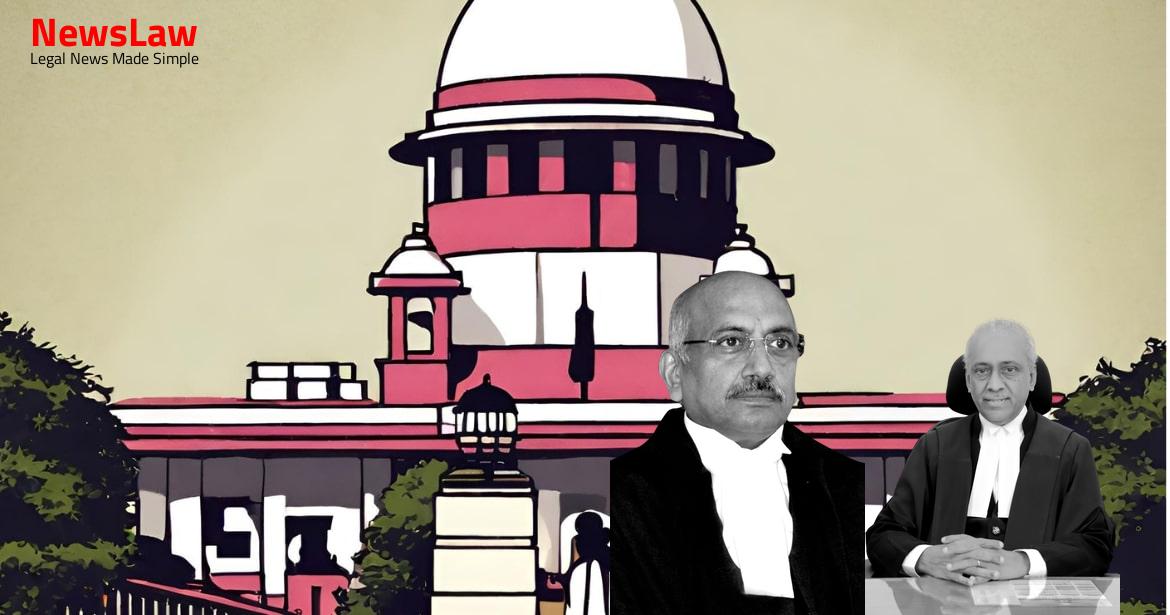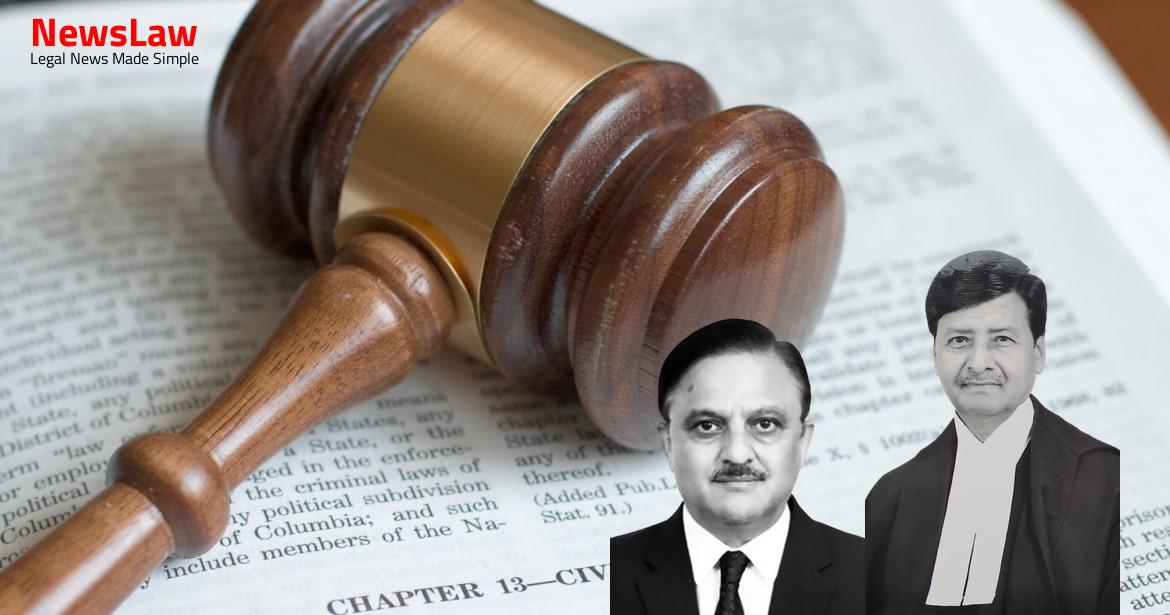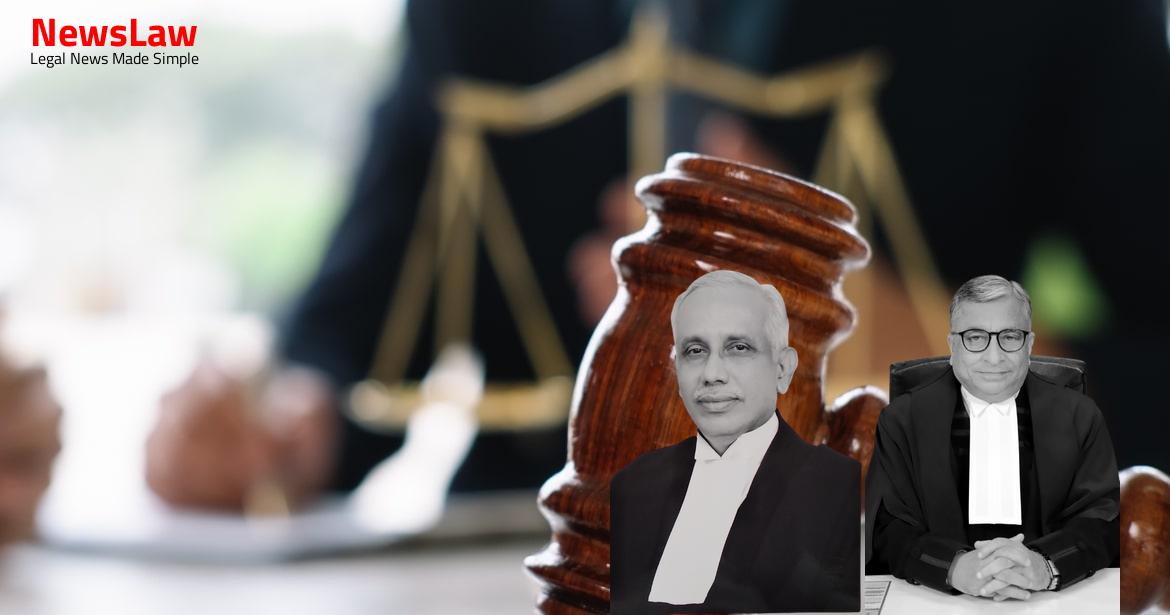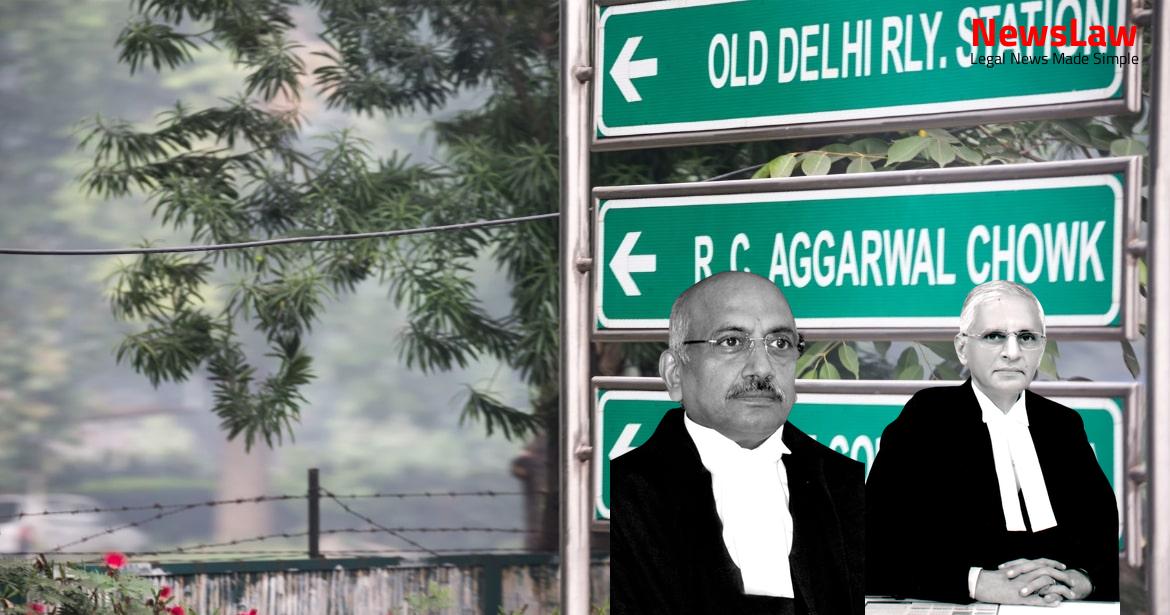Delve into the complex legal analysis conducted by the court in a winding up case, examining the importance of procedural mandates and evidentiary standards. Discover the nuances of the court’s rulings and decisions, shedding light on crucial aspects of company law and winding up proceedings.
Facts
- An Agreement was entered into on 28.01.2005 between Antrix and Devas for the lease of space segment capacity on ISRO/Antrix S-Band spacecraft by DEVAS.
- The Agreement was terminated by Antrix on 25.02.2011 due to force majeure.
- Devas claimed to have conducted experiments on emerging technologies for satellite and terrestrial systems in September 2009.
- Devas obtained an Internet Service Provider (ISP) License on 02.05.2008 and permission for providing Internet Protocol Television (IPTV) services on 31.03.2009.
- Meetings were held between Forge and ISRO/Antrix, leading to the formation of a joint venture for DEVAS.
- An order of winding up was passed by the National Company Law Tribunal under Section 271(c) of the Companies Act, 2013, which was confirmed by the National Company Law Appellate Tribunal.
- Devas initiated commercial arbitration in India before the ICC Arbitral Tribunal due to the termination of the Agreement in 2011.
- Antrix filed a First Information Report against Devas and its officers for offences under IPC and the Prevention of Corruption Act.
- Devas brought an investment of about INR 579 crores into India and set up Devas Multimedia Private Limited in December 2004.
- DEPL file a writ appeal 97 before the Division Bench of the High Court of Karnataka against the order upholding the constitutional validity of certain provisions
- DEPL also filed a writ petition challenging the constitutional validity of Section 272(1)(e) of the Companies Act, 2013 and the authorization granted by the Ministry of Corporate Affairs to Antrix
- High Court dismissed the Writ Petition on 28.04.2021 and imposed costs of Rs.5,00,000/- on DEPL for abuse of process of law
- NCLT directed the winding up of Devas on 25.05.2021 with final orders
- DEPL withdrew the writ appeal after the NCLT orders and continued the legal battle by filing a writ petition challenging the authorization given to Antrix and the constitutional validity of certain provisions
- High Court of Karnataka dismissed the writ petition on 28.04.2021 with costs of Rs.5,00,000/- for abuse of process of law
Also Read: Undisclosed Conviction for Dharna Under Police Act Leads to Overturned Election
Arguments
- Learned senior counsel for the appellants argued that the petition for winding up should have been filed by a certain date.
- It was contended that the Tribunal has limited discretion in issuing directions regarding the publication of an advertisement.
- Allegations of fraud require a full-fledged trial, and the Tribunal should have allowed parties to lead evidence and cross-examine witnesses.
- The Tribunal has powers similar to a Civil Court under the Companies Act, 2013 for summoning witnesses and examining them on oath.
- The Tribunals made a legal error by basing findings on fraud solely on affidavits and documents.
- Appellants argued that a company cannot be ordered to be wound up based solely on prima facie findings.
- Reliance placed on the decision in Jignesh Shah and Anr. vs Union of India and Anr. for arguing that the winding-up petition should have been dismissed due to limitation issues.
- Contention that denying shareholders the right to be heard violates principles of natural justice and the rule of audi alteram partem.
- No provision in the Act or Rules for shareholders to be made respondents in a winding-up petition.
- Allegations that the motive behind Antrix seeking winding up of Devas is to deprive Devas of certain benefits and sending a wrong message to international investors.
- Assertion that shareholders abroad prosecuting proceedings while avoiding summons service for five years shows prejudice against the company.
- NCLT and NCLAT accused of recording erroneous findings and applying incorrect standard of proof in the case.
- Defence of impugned orders based on redundancy of advertisement requirement, legal interpretations of fraud, and failure of Devas to challenge the constitutional validity of Section 271(c).
- Additional Solicitor General defending impugned orders with detailed findings of fraud committed by Devas and violations of agreements and policies.
- Mention of SATCOM policy violation, manipulation of meeting minutes, and misleading Cabinet Note as supporting points for the defence.
Also Read: Critical Analysis of Legal Principles in a High-Profile Criminal Case
Analysis
- Rule 96 deals with the admission of the petition and directions for advertisement.
- Rule 99 pertains to the advertisement of the petition and the specific details that must be included in the advertisement.
- The rules state that the petition should be advertised as per the directions of the Court, using specific language and including essential information.
- An affidavit must be filed to the Tribunal stating whether the petition has been advertised properly and if notices have been served as required.
- The Central Government may authorize a person to present a petition for winding up on just and equitable grounds.
- Section 243 of the 1956 Act empowers the Central Government to cause a petition for winding up to be presented.
- Various Rules such as Rule 35 of the NCLT Rules 2016 and Rule 19 provide guidelines for the advertisement of petitions and winding up proceedings.
- The Rules outline a procedure for admission of the petition, giving directions for advertisement, and granting the company an opportunity to be heard before the advertisement of the petition.
- Fraud is identified as a ground for winding up a company and specific rules are in place for situations involving fraud.
- Publication of advertisements is mandatory for winding up petitions as per Rule 96 read with Rule 99.
- Non-compliance with advertisement provisions can lead the Court to reject the petition.
- Section 124-A of the Insolvency Act allows for winding up of a company in the public interest if deemed just and equitable by the court.
- The conduct of a company’s affairs in a fraudulent manner indicates a continuing process.
- Acknowledgment of liability by the principal borrower or corporate guarantor must be before the expiration of the limitation period.
- Entries in the balance sheets of a corporate debtor can constitute acknowledgment of liability under Section 18 of the Limitation Act.
- Rule 101 allows for the substitution of a creditor or contributory if the original petitioner fails to advertise the petition.
- Court decisions emphasize the mandatory nature of advertisement in winding up proceedings.
- The court may have discretion in directing advertisement to ensure the interests of all creditors are secured.
- Non-compliance with procedural mandatory requirements can be a ground to set aside a winding up order.
- Allowing Devas and its shareholders to benefit from fraudulent actions could send a wrong message.
- The fraudulent means used by Devas to bring in investments may encourage similar actions in the future.
- The possibility of investors hoping to receive large sums of money even after siphoning off funds is a concern.
- The decision of Antrix to seek the winding up of Devas may also have negative implications on the investor community.
Also Read: Interpretation of Stamp Duty Provisions
Decision
- DEMPL’s application for impleadment was filed on 2.03.3021.
- The appeals were dismissed with no order as to costs.
- All grounds of attack on the NCLT and NCLAT orders were found to be unsustainable.
- Devas filed an application on 5.05.2021 to cross-examine Antrix’s Managing Director and Finance Director.
- On 10.05.2021, NCLT reserved the judgment.
Case Title: DEVAS MULTIMEDIA PRIVATE LIMITED Vs. ANTRIX CORPORATION LIMITED (2022 INSC 49)
Case Number: C.A. No.-005766 / 2021



